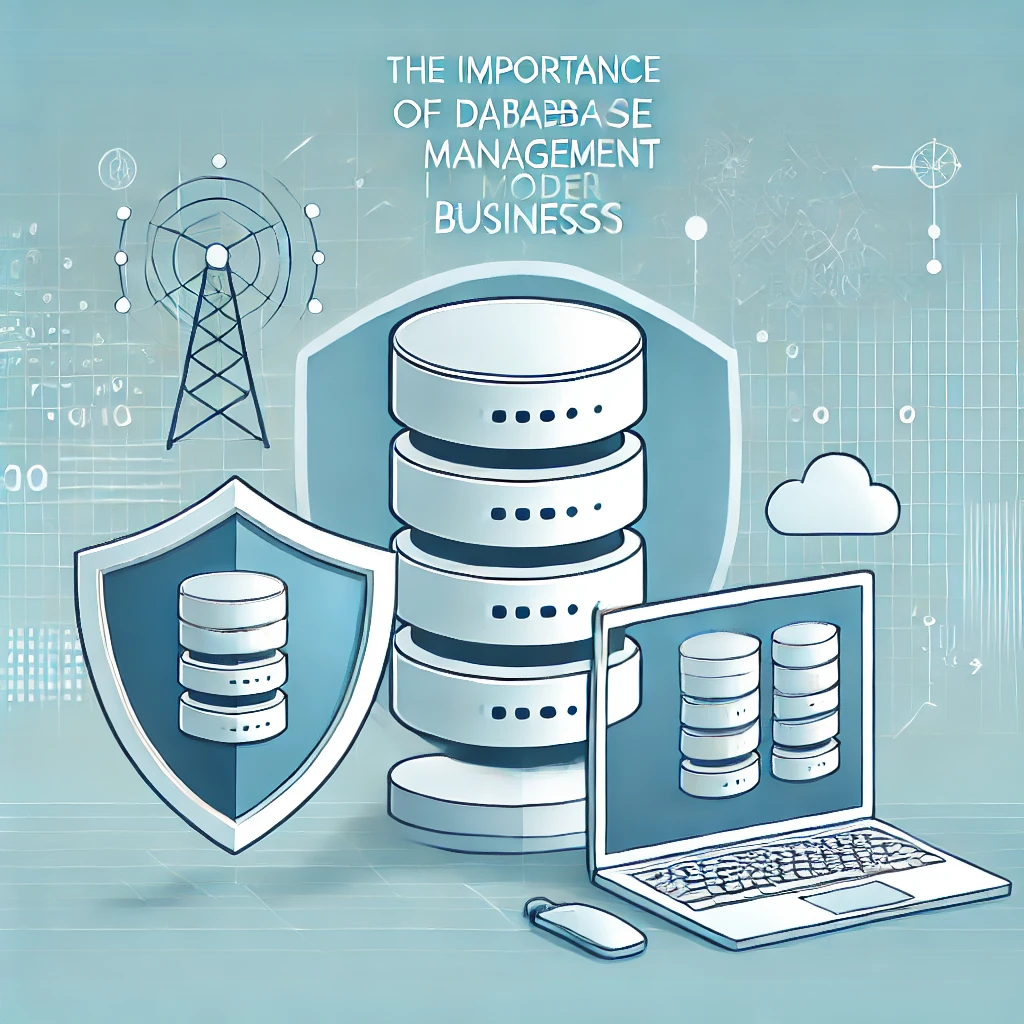Introduction
In today’s digital age, data has become a critical asset for businesses. Effective database management is essential for ensuring data security, accessibility, and performance. This article explores the importance of database management and its benefits for modern businesses.
Benefits of Effective Database Management
- Improved Data Security
One of the primary benefits of effective database management is improved data security. With the increasing number of cyber threats and data breaches, protecting sensitive information is paramount. A robust database management system (DBMS) ensures that data is encrypted, access is controlled, and regular security audits are conducted to identify and mitigate potential vulnerabilities.
- Enhanced Data Accessibility and Organization
Another significant benefit of effective database management is enhanced data accessibility and organization. When data is well-organized and easily accessible, it allows businesses to quickly retrieve and use the information they need. This improves efficiency and productivity, as employees spend less time searching for data and more time on value-added tasks.
- Better Decision-Making Capabilities
Effective database management also improves decision-making capabilities. Accurate and timely data is crucial for making informed business decisions. A DBMS ensures that data is up-to-date and readily available, enabling decision-makers to analyze trends, identify opportunities, and make strategic choices that drive business growth.
- Increased Efficiency and Productivity
A well-managed database streamlines business operations and increases efficiency. By automating routine tasks, such as data entry and updates, a DBMS reduces the risk of human error and frees up valuable time for employees to focus on more critical activities. This leads to higher productivity and better overall performance.
Challenges in Database Management
While the benefits of effective database management are clear, businesses often face several challenges in managing their data. Some common issues include:
- Data Complexity
Managing large volumes of complex data can be daunting. As businesses grow, the amount of data they generate and store increases exponentially. A robust DBMS can handle this complexity by providing tools for organizing, indexing, and retrieving data efficiently.
- Security Threats
Data security is a significant concern for businesses. Cyber-attacks and data breaches can result in substantial financial losses and damage to a company’s reputation. A DBMS with advanced security features, such as encryption and access controls, helps protect sensitive information from unauthorized access and potential threats.
- Scalability
As businesses expand, their data management needs change. A scalable DBMS can accommodate growing data volumes and adapt to the evolving requirements of the business. This ensures that the database system remains efficient and effective, regardless of the company’s size or growth rate.
- Integration
Seamlessly integrating a DBMS with other systems and applications is essential for ensuring smooth data flow across the organization. A DBMS with robust integration capabilities can connect with various tools and platforms, enabling businesses to leverage their data more effectively.
Key Features of a Robust Database Management Solution
To address these challenges and maximize the benefits of database management, businesses should look for the following key features in a DBMS:
- Security Measures
Advanced security measures, such as encryption, access controls, and regular security audits, are crucial for protecting sensitive data. A robust DBMS should provide these features to ensure data security and compliance with industry regulations.
- Scalability
A scalable DBMS can handle growing data volumes and adapt to the changing needs of the business. This ensures that the database system remains efficient and effective as the company expands.
- User-Friendly Interface
A user-friendly interface makes it easy for employees to navigate and use the DBMS. This improves efficiency and reduces the learning curve for new users, enabling them to quickly become proficient with the system.
- Integration Capabilities
Robust integration capabilities allow the DBMS to connect with various tools and platforms, ensuring smooth data flow across the organization. This enables businesses to leverage their data more effectively and make informed decisions.
Conclusion
Effective database management is crucial for modern businesses. It improves data security, accessibility, and performance, leading to better decision-making capabilities and increased efficiency. By investing in a robust DBMS with advanced features, businesses can address common data management challenges and maximize the benefits of their data assets. Ensuring proper database management is essential for staying competitive in today’s data-driven world.







Comments
0 comments